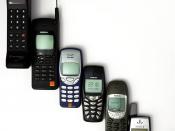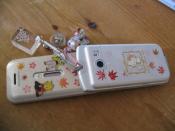In today's busy world, there are usually three essential items one would take when going out: a wallet, a watch and a mobile phone. Now picture a guest who has a reservation and is ready to check-in at your hotel. He takes his mobile phone out, while passing through the check-in counter, he receives a message on his cell phone that includes a room number and goes straight to his room. This guest has checked-in, received his room number and a code to open his hotel room all through his mobile phone and without losing a step.
One of this year's big improvements in technology and hospitality is the mobile phone check-in. The innovation was first developed in 2001 which was a wireless pocket-sized device that enable a hotel employee to check-in guests without having to face the front desk hassle (Haussman, 2001). However, the procedure isn't as simple as it seems.
In order to check-in with the wireless device, the customer has to show his/her credit card "to check the reservations via a wireless LAN connection to a server" (Hamblen, 2001). The goal with the wireless check-in was to reduce the check-in lines at the front desk and to have a faster check-in procedure for guests. When comparing the two self check-ins (wireless/credit card and the cell phone), the technology of using your own personal cell phone to do such services, prevails in terms of efficiency, "at least in pilot-form" (Williams, 2006). However, in order to understand how the wireless mobile check-in works, one needs to be familiar with such terms as RFID and NFC. Radio Frequency Identification (RFID) is what makes it possible for this great technological innovation to happen. RFID is "a technology that harnesses radio waves to identify individual items for management and control purposes" (Monahan,


